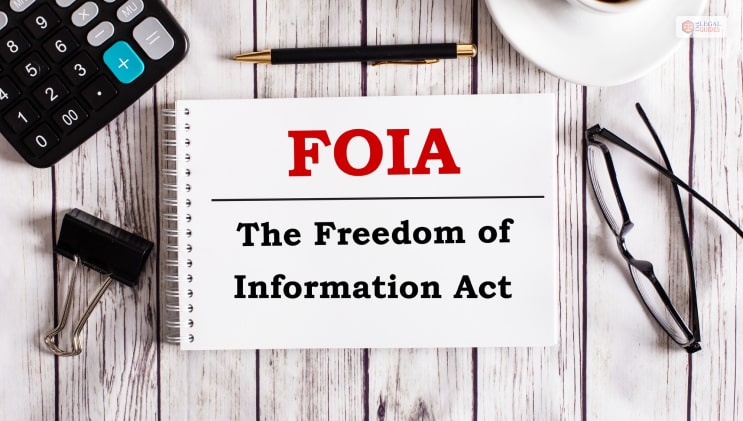The Freedom Of Information Act is the law that manifests the freedom of information that is supposed to be available to the citizens of a democratic nation.
So, What Is The Freedom Of Information Act? When Was It Passed?

It is functioning and active since 1966 when President Johnson gave it the force of law by signing it and passing it as an Act under the United States Congress.
It is the key element that is often used by journalists and other news reporting agencies to access information that was previously unpublished by the United States Government. Business firms and law firms have also held the title of the most benefitted parties under this piece of federal legislation.
Where Did The Act Originate?

The Freedom Of Information Act was initially a major part of the Administrative Procedures Act. Passed in 1946, this Act made sure that federal agencies of the United States Government took governance of the matters that involved the publishing of government records.
It was made into separate federal legislation because under its mother Act, it proved to be too protective in nature, i.e, the procedure to get hold of the records under the Act became very difficult and complicated.
If any organization is withholding documents without sufficient reason, one has the option to file a case under the Freedom Of Information Act. The District Court will then take charge of the case and make sure that the information is made available.
The Privacy Act, Of 1974

This Act was soon passed as a safety measure against the measure of the right of information. The Privacy Act made sure that the confidential documents of the United States Government were kept safe and protected from the grips of the Freedom of Information Act.
Where Can The Act Be Applied?

The provisions of this Act can only be applied to the Federal and State Government Agencies that fall under the Executive Branch of the United States. Under the functioning of this Act, an agency can face legal penalties for withholding documents from the public despite there not being a sufficient reason to do that.
The Freedom Of Information Act also gives the government the power to appoint a special body that can look into which specific body or person is responsible for withholding information. After the investigation is over, the Court having jurisdiction over the matter can also determine what disciplinary action can be taken against the person, group, or body responsible for it.
The following things are to be excluded from the implications of the Act.
Issue Of Nation Defense

Any matter that when released to the public for access can harm the security of the nation is considered to be sensitive. It is the duty of the government to protect such sensitive information and make sure that the public cannot get hold of the details contained in these documents, even under this Act.
Issues That Are Completely Personal To An Agency

The internal workings of an agency cannot be accessed by the public at large with the use of the Freedom of Information Act.
Trade Secrets
Confidential information of an organization and its trade secrets cannot be accessed by the public at large. The Right of Information is silent and does provide any power to one when it comes to the trade secrets of an organization.
Memoranda Or Other Official Documents

Official documents of an organization cannot be gotten hold of through the workings of this Act.
Medical Files
The personal medical records of a person are too privy to be handed out to the public at large. Access to such personal information can be seen as a violation of one’s right to privacy.
The Postal Reorganization Act
This Act makes sure that no person employed under the United States Postal Service can go ahead and get access to one’s mail, especially one of a commercial nature.
Details Of An Ongoing Criminal Investigation
Any detail, be it large or minute cannot be divulged to the public at large, and that when done can cause serious implications to a case. Unless the Judges have adjudicated upon a case, the details of it are not to be shared with the public. Not even under the provisions mentioned under this Act.
How To File A Freedom Of Information Act?

In order to issue a request under this Act, one has to visit the Federal Agency that operates under the power vested by the Act. Once present, they have to file a request stating the details that they7 wish to access.
If the requests are filed under the guidelines of the Act, then they should be accepted without much hassle.
There also exists a number of provisions that state that such Freedom Of Information can also be exercised when electronic media is in question.
For example,
- Executive order 13233,
- the Amendments to electronic freedom of information of 1996,
- the Intelligence Authorization Act,
- and lastly, Judicial precedents.
File Your Request Now!
If you are currently in need of information that you need to access, and if you want to pursue such need in a legal manner then read on.
Here is the site authorized by the United States government that can accept your request for information. If you have cold feet, go over the tips that have been provided on the site itself. Once you feel confident, go ahead with the filing of your request, by visiting https://www.foia.gov/.
The right to information is to be enjoyed by every citizen of a Democratic nation. Be sure to exercise your right!
Do let us know if you found the article informative!
Leave your doubts and questions in the comment box below!
Read Also:
















